SEO stands for Search Engine Optimization. It helps websites show up in Google and other search engines. It brings free traffic to your site. It works by improving content, links and website setup. Search engines crawl and rank your pages using many factors. Good SEO means more people can find your business online. You do not need to pay for every click like ads. With the right strategy, SEO can grow your site over time.
It is the key to getting found online. It helps your website appear in search results. With SEO, you get more clicks without paying for ads. It makes your content easy for Google to understand. Even small updates can bring big traffic over time. Let’s explore how SEO really works behind the scenes.
What is Search Engine Optimization (SEO)?
Search Engine Optimization (SEO) helps your website rank on Google. It brings free, organic traffic to your pages. SEO works by improving your site’s content and structure. It also focuses on speed, mobile use and keywords. Search engines use bots to scan and rank websites. The better your SEO, the higher you show in search. This means more people can find and visit your site.
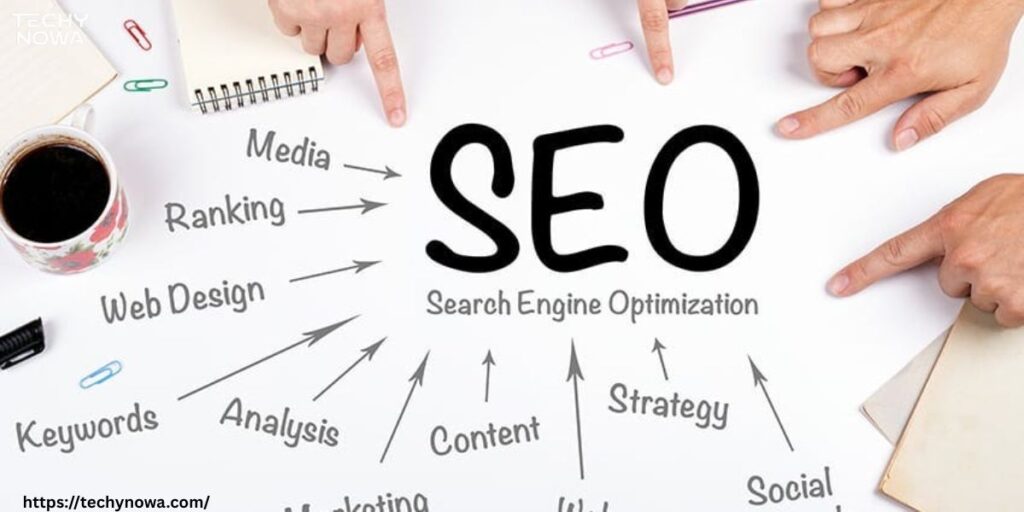
It is made up of many small steps. It includes keyword research, link building and content updates. You do not need to pay for every visitor like ads. Instead, SEO builds long-term, steady traffic. It helps build trust with search engines and users. Many businesses use it to grow online. Learning SEO is smart for anyone with a website.
Related guide:MS Word 2007 Tutorial: Learn Basics Fast
What are the three pillars of SEO?
SEO is built on three main pillars. Each one plays a key role in helping your website rank. They work together to improve traffic, trust and visibility. Let’s look at each pillar and how it helps your site.
- Technical SEO: This focuses on how your website works behind the scenes. It includes site speed, mobile-friendliness, and security. Search engines need to crawl and index your pages easily. Fixing errors and submitting a sitemap helps a lot. Good technical SEO makes your site easy for Google to read.
- On-Page SEO: This covers everything on your website pages. It includes titles, keywords, and useful content. Using the right words helps search engines understand your topic. Organized headings and internal links also help users. On-page SEO improves both ranking and user experience.
- Off-Page SEO: This is what happens outside your site. It mostly deals with getting backlinks from other websites. Links from trusted sites boost your authority. Social signals and brand mentions also play a role. Strong off-page SEO tells Google your site is valuable.
Paid search vs. organic search – the differences and similarities
Paid search and organic search both help people find your website. Paid search gives quick results but costs money. Organic search is free but takes time to grow. Both need good keywords and content to work well.
- Cost: Paid search charges you for each click. You set a budget and pay based on bids. Organic search brings traffic without paying per click.
- Speed: Paid search gives fast visibility and results. Ads can appear at the top of search pages. Organic search takes time to build rankings.
- Lifespan: Paid ads stop when your budget runs out. Organic traffic keeps coming with regular updates. SEO gives long-term benefits with no extra cost.
- Positioning: Paid results show above organic listings.They are marked as “Ad” or “Sponsored.” Organic results appear just below and are trusted more.
- Click Behavior: Many users skip paid ads and trust organic links. Organic clicks often show better engagement. Both can drive traffic depending on user intent.
How do search engines actually work?

Search engines work by finding and ranking web pages. They use bots to crawl sites and collect data. Then they index the content in a large database. Finally, they show the best results for each search.
Step 1: Search Engine Crawling
Search engines start by crawling websites. They use bots called spiders or crawlers. These bots scan pages to collect data. They follow links to find more content. New or updated pages are checked often. Crawling is the first step to being found online.
Step 2: Search Engine Indexing
After crawling, search engines store the page info. This step is called indexing.The content is added to a huge database. Only quality pages get indexed. Duplicate or spammy pages may be skipped. Indexing helps search engines show your site in results.
Step 3: Search Engine Ranking
Ranking is the final and most important step. It decides where your page appears in search results. Many factors affect ranking like speed and content. Good backlinks also improve your position. Pages are ranked to match user intent. Better SEO means higher rankings in search.
Related guide: What Is Smart Home Technology And How It Works?
How does Google order and rank search results?
Google ranks pages using many smart systems. It looks at content, keywords and page quality. One key tool is called RankBrain. It helps Google understand what users really want. Pages that match search intent rank higher. Google also checks how users act on your page. Better experience often means better rankings.
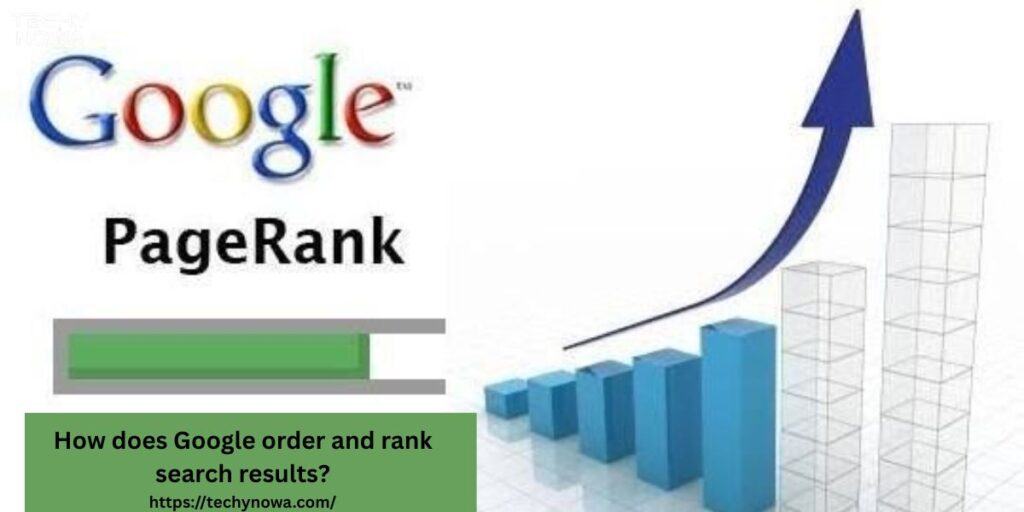
Google uses other tools like Panda and Hummingbird. These help filter low-quality or spammy sites. It checks if the content is useful and clear. Backlinks and page speed also matter a lot. Mobile-friendly sites often rank higher too. Google updates its systems often to improve results. Good SEO means keeping up with these changes.
How to get the most out of RankBrain
- Use natural language: Write how people speak. Keep it clear and simple.
- Match search intent: Answer what users want. Be direct and helpful.
- Use long-tail keywords: Add 2–3 word phrases. They match real searches.
- Boost click-through rate: Write strong titles. Make people want to click.
- Improve dwell time: Add images or videos. Keep users on the page.
- Lower bounce rate: Make content useful. Help users stay longer.
- Update often: Refresh old posts. Keep info up to date.
What is an SEO strategy?
An SEO strategy is a clear plan to improve rankings. It helps your site show up in search results. The goal is to get more free traffic. It focuses on keywords, content and site structure. A strong strategy keeps your SEO work on track. It also saves time and brings better results.
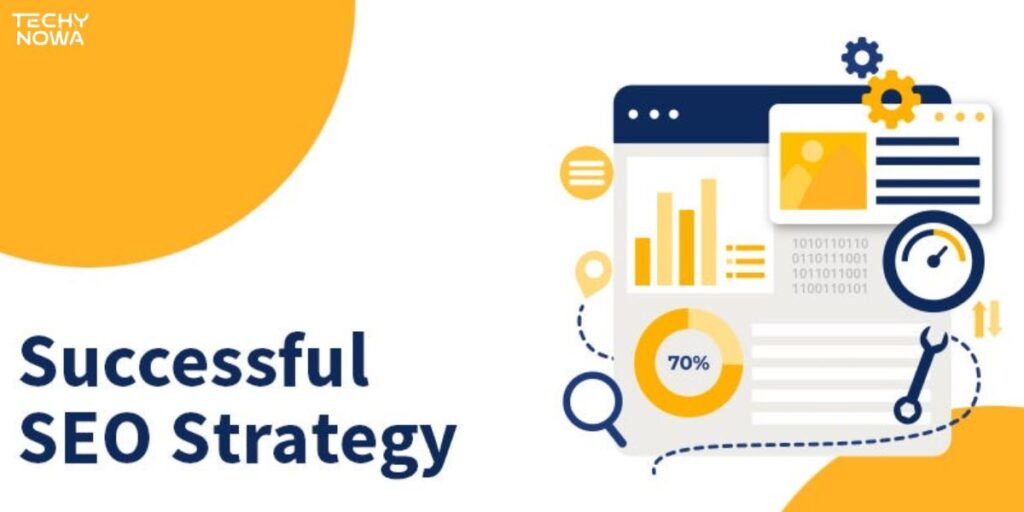
Every website needs a good SEO strategy. It tells you what to fix and what to improve.
You can set goals and measure progress. Local businesses can use it to reach nearby users.
Big sites use it to target more keywords. No matter the size, a smart plan makes SEO easier.
How to set objectives for your SEO strategy
- Know your business goals: Understand what your business wants to achieve.
Match your SEO goals with these targets. - Focus on the right metrics: Use traffic, keyword ranks or leads as your guide.
Pick goals you can track and measure. - Set realistic targets: Do not aim too high if you’re just starting. Use past data to set smart goals.
- Track progress often: Check your SEO results every week or month. Use tools like Google Analytics or Search Console.
- Adjust when needed: If goals are not working, tweak your plan. SEO needs testing and time to improve.
What metrics should you measure for SEO?
SEO metrics help track your website’s growth. Start with keyword rankings to see visibility. Organic traffic shows how many visits from search. Check bounce rate to see if users stay or leave. Look at time on page to measure content value. High numbers mean your SEO is working well.
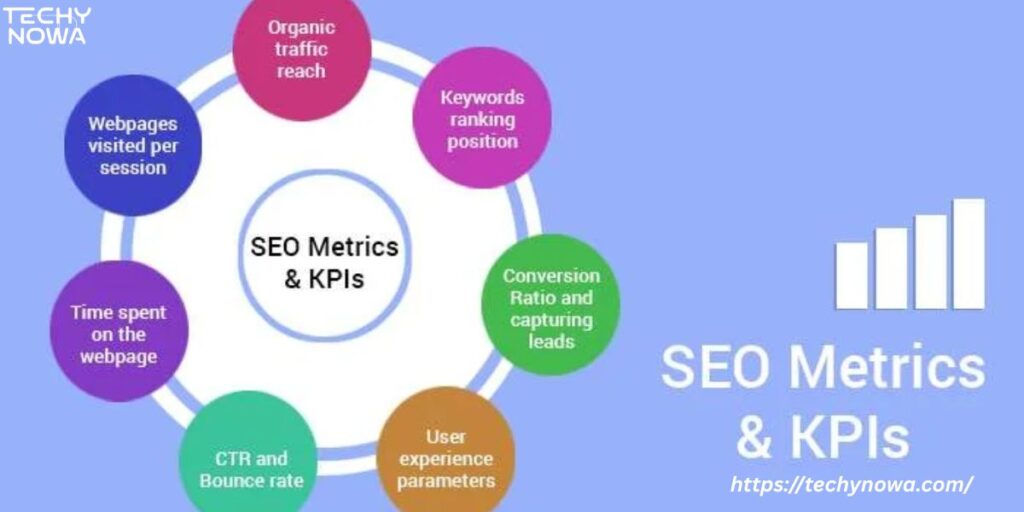
Click-through rate (CTR) shows if people click your links. Engagement metrics include likes, shares and comments. Track leads to see if traffic turns into sales. Monitor domain authority for site trust and power. Use tools like GA4 and Search Console to check data. These metrics help improve and adjust your SEO plan.
3 Examples of SEO objectives
Improve Keyword Rankings: Move 50% of top 20 keywords to Google’s first page. Focus on ranking high-value keywords. Track progress every month.
Increase Organic Traffic: Grow website traffic by 20% in Q3 and 25% in Q4. Use fresh content and strong SEO tactics. Measure results with analytics tools.
Boost Market Share: Raise SEO market share from 3% to 5% this year. Target more keywords and build backlinks. Watch growth using SEO tracking tools.
How to set objectives for different types of businesses
SEO metrics help track your website’s growth. Organic traffic shows how many people visit from search. Keyword rankings tell where your site appears on Google. Click-through rate (CTR) shows how many people click your link. Time on page tells if users find your content helpful. These metrics show if your SEO is working well.
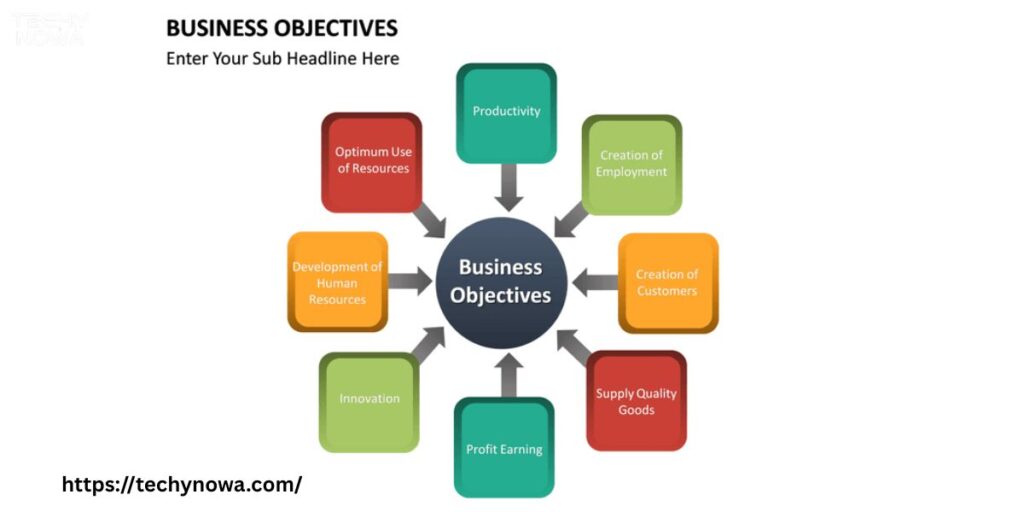
Engagement rate tracks likes, shares, and comments. Bounce rate shows how many leave after one page. Leads and revenue link your SEO to real results. Domain authority shows your site’s trust level. SERP position tells how close you are to the top. Together, these metrics guide your SEO goals.
How to Become an SEO Specialist?
- Learn SEO basics: Understand keywords, links, and how Google works. Start with free online SEO guides or courses.
- Practice SEO on real sites: Build a blog or help a small business. Test your skills and track the results.
- Master SEO tools: Use tools like Google Search Console and Semrush. Learn how to track keywords and traffic.
- Stay updated: Follow SEO news and Google updates. SEO changes often, so keep learning.
- Build key skills: Focus on writing, research, and technical fixes. Learn both on-page and off-page SEO.
- Grow your network: Join SEO groups and attend webinars. Connect with other SEO experts online.
What skills do you need to become an SEO specialist?
To become an SEO specialist, you need key skills. Start with keyword research and content writing. Learn how to find and use the right search terms. Know how to create useful, clear content. Master link building to boost site authority. Understanding SEO tools is also very helpful.

You also need technical SEO skills. Learn about site speed, mobile setup and crawl errors. Basic coding can help with on-page fixes. Data analysis is key for tracking results. Good communication helps explain SEO to clients. With practice, you can grow into a strong SEO expert.
What can you earn as an SEO specialist?
- Entry-level SEO specialists can earn around $49k to $72k per year.
- SEO analysts and executives usually make between $62k and $101k yearly.
- SEO strategists may earn $69k to $110k depending on experience.
- SEO managers often earn $80k to $120k per year.
- Senior SEO experts or heads of SEO can earn up to $192k yearly.
- Freelancers may earn more or less based on projects and clients.
- Salary also depends on location, company size and skills.
What are the best SEO tools?
SEO tools help improve your website performance. Google Search Console shows how your site ranks. GA4 tracks traffic and user behavior. Semrush and Ahrefs find keywords and backlinks. Moz Pro offers easy site audits. These tools help you plan and fix SEO issues.
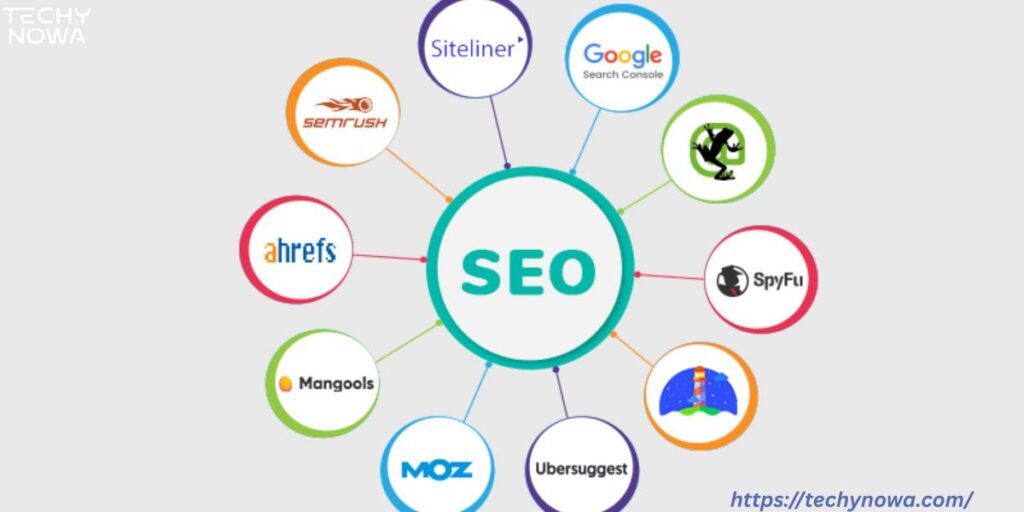
Ubersuggest gives keyword ideas and content tips. KWFinder shows low-competition keywords to target. Screaming Frog scans your site for errors. PageSpeed Insights checks how fast your site loads. AnswerThePublic shows what people are searching for. Using these tools can grow your SEO success.
AI and SEO – what’s coming?
AI is changing how SEO works every day. Tools now use AI to find the best keywords. They also help write and improve content. Google uses AI like RankBrain and Gemini. These tools understand what users really want. This helps show better and smarter results.

Future SEO will focus more on user intent. AI will make search more personal and faster. Answer engines like ChatGPT and Google SGE matter. Video SEO and voice search will also grow. Tools will predict trends and help plan content. Staying updated with AI tools is now a must.
Use SEO to drive traffic and boost brand awareness
- SEO helps people find your website on Google.
- More traffic means more chances to grow your brand.
- Ranking high builds trust with new visitors.
- Good content makes people stay and explore.
- Using the right keywords attracts your target audience.
- SEO increases visibility without paying for ads.
- Local SEO helps your business get seen nearby.
- The more people see your brand, the more they remember it.
- SEO works over time to grow your online presence.
Why SEO Matters for Businesses in 2025
SEO matters for businesses in 2025 more than ever. Customers search online before buying. Good SEO makes your brand visible. It brings organic traffic without paid ads. High ranking builds trust and credibility. Local SEO helps small businesses reach nearby buyers. Voice search and AI make SEO vital.

Mobile optimization is now a must. Without SEO, businesses lose online reach. It also improves user experience. SEO drives long-term growth at low cost. Competitors are already using it. Businesses that ignore SEO fall behind. Strong SEO boosts sales and brand value. In 2025, SEO is not optional. It is essential.
Common SEO Mistakes to Avoid
Many beginners make common SEO mistakes. They forget keyword research, like going shopping without a list. Some overstuff keywords. Which feels unnatural, like repeating the same word in every sentence of a story. Ignoring meta descriptions is another mistake, like leaving a book without a title. Not optimizing images slows websites, just like carrying extra weight slows a runner.
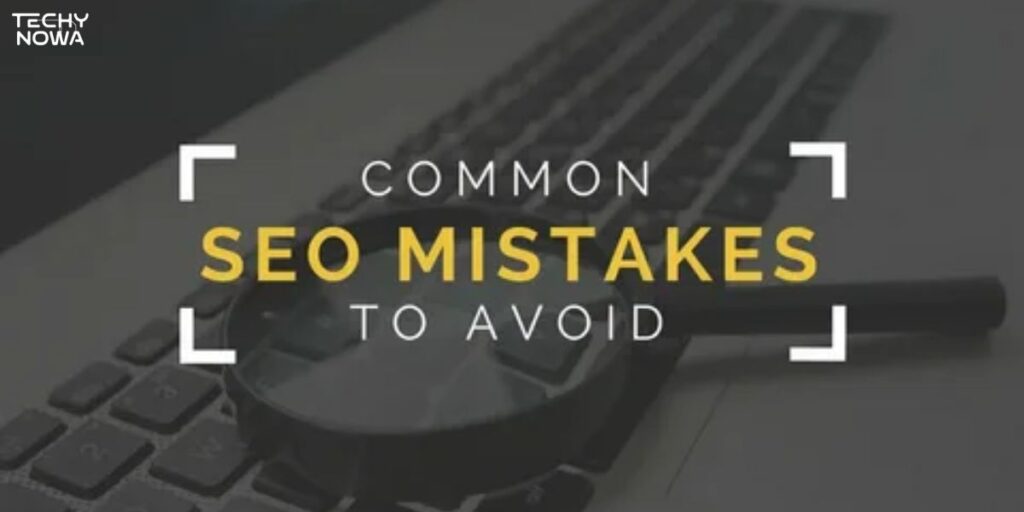
Skipping mobile optimization is harmful, as most people browse on phones, like carrying a big bag in a small doorway. Poor internal linking is also bad, like building roads without signs. Avoiding these mistakes improves ranking and user experience.
Future Trends Shaping the SEO Industry
The SEO industry is changing fast. Voice search is growing with smart devices. AI tools are shaping keyword research. Search engines focus more on user intent. Mobile-first indexing is now a priority. Video content boosts online visibility. Featured snippets gain more clicks. Local SEO helps small businesses grow. E-E-A-T builds trust and rankings.

Core Web Vitals improve user experience. Personalization makes search results smarter. Visual search is also rising. Zero-click searches are increasing. Content quality matters more than quantity. Social signals support brand authority. Future SEO is about adapting quickly. Staying updated ensures online success.
Frequently Asked Question
What is SEO?
SEO stands for Search Engine Optimization. It helps your site show up in Google search. It brings free traffic to your website.
How does SEO work?
SEO works by improving your site content and structure. Search engines scan and rank your pages. Better SEO means better rankings.
Is SEO free?
Yes, SEO brings free traffic. But it takes time and effort. You do not pay for each click like ads.
How long does SEO take?
SEO results take time to show. It may take weeks or months. But results often last longer than ads.
Why is SEO important?
SEO helps people find your business online. It builds trust and boosts traffic. Good SEO can grow your brand.
Conclusion
SEO is a powerful tool for online growth. It brings free traffic to your website. You do not need to pay for every click. Good SEO improves your search rankings. It helps people find your business faster. SEO builds trust and brand visibility. Every website can benefit from strong SEO.
Start with simple SEO steps today. Use the right keywords in your content. Improve your site’s speed and mobile design. Focus on quality content and helpful links. Track your results and keep learning. Stay updated with SEO and AI changes. With time, SEO brings long-term success.








